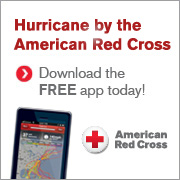Written by Kyla Campbell, staff contributor
Twenty years ago today, Hurricane Andrew, the first named storm of the season, slammed into southern Florida causing major destruction around Florida City, Miami and parts of the Louisiana coastlines. This hurricane season has already produced Alberto, Beryl, Chris, Debbie, Ernesto, Florence, Gordon and Helene by Andrew's landfall anniversary but it's this ninth named storm which appears to be gunning for the exact same area as Andrew.
While the severity of Isaac appears no where close to Andrew's strength, teams of Red Cross volunteers across the nation are prepping for landfall and the impact it may have on local residents. As of today, 16 volunteers from the North Texas Region swiftly packed their go bags, charged up electronics, packed their Red Cross wellies, threw on the red vest and headed south. Many of these volunteers were only home a few days from Oklahoma when the call came that residents in Florida could need them.
A sincere thank you to the volunteer who leaves the comfort of their home to help others.
If you are interested in helping others here at home or around the country in times of emergencies, you may be a future Red Cross volunteer. To find out more visit redcross.org.
If you wish to help financially, a gift is always appreciated. Donor support means we are able to mobilize these highly trained volunteers to areas we expect to be hardest hit by disasters.
Whether a disasters here at home or across the country, count on the Red Cross being there!
Update as of 8/26/12: Nineteen volunteers deployed to Louisiana, Mississippi, Alabama and Florida while numerous others help plan here in Texas.
Update as of 8/26/12: Nineteen volunteers deployed to Louisiana, Mississippi, Alabama and Florida while numerous others help plan here in Texas.





